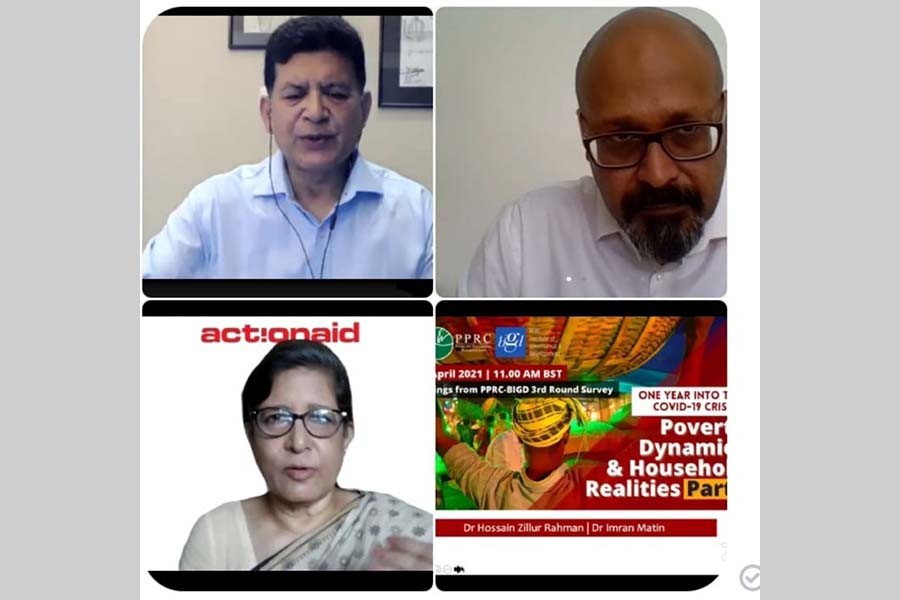Bangladesh sees 25m new poor, debt burden doubles during pandemic: Survey

Published :
Updated :

The army of the ‘new poor’, struggling to return to pre-Covid occupations and income levels, is in danger of being stuck in a poverty trap, says a joint survey released on Tuesday.
It estimated that the new poor constituted 21.2 per cent of the national population in June 2020, and now they constitute 14.8, which stands at 24.5 million people.
One year into the Covid-19 pandemic, the poor across Bangladesh are facing emerging vulnerabilities, like mounting debt and dwindling savings, according to a survey conducted by the Power and Participation Research Centre (PPRC) and BRAC Institute of Governance and Development.
The survey titled ‘Poverty Dynamics and Household Realities’ that covered 6,099 households observed per capita income in urban slums is still 14 per cent below pre-Covid levels.
The study found depletion of savings and doubling of debt in the past year or so.
“Social protection is playing only a token role in covid response… So, there is an urgent need for specific new and significant programmes,” PPRC Executive Chairman Hossain Zillur Rahman said while launching the report virtually.
The survey, in its earlier phase, found in June last year that the income of 72 per cent of the vulnerable non-poor had sunk below the poverty line, who were then identified as the new poor.
The percentage of new poor among the same group is 50 per cent at present – 59 per cent in urban slums and 44 per cent in rural areas, it added.
Presenting the report, BIGD Executive Director Imran Matin cautioned that a persistently high unemployment rate among women, caused by Covid-19, can push many women out of the labour market, a grave outlook in a country where women’s labour force participation is already low.
He also pointed out the large shift to more vulnerable occupations like day labour is increasing the livelihoods vulnerabilities of the poor.
Mr Hossain Zillur Rahman emphasised that to tackle women and ‘new poor’ caught in an emerging poverty trap due to vulnerability of the ‘meso-economy’ including cottage, small and medium enterprises (CSME) sector, a targeted and ‘big-push’ is necessary.


 For all latest news, follow The Financial Express Google News channel.
For all latest news, follow The Financial Express Google News channel.